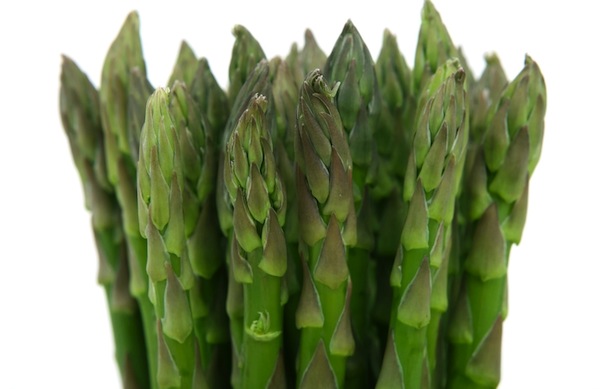(photo from pixnio.com)
In Israel, asparagus is not widely seen in the outdoor markets but, when it is, I am always happy to buy it. There are at least 10 reasons why we should eat more asparagus.
- It contains lots of fibre, making it a good choice if you’re trying to lose weight, because your body digests fibre slowly, which keeps you feeling full in between meals. (It is also low in fat and calories: one cup is a mere 32 calories.)
- It contains high levels of the amino acid asparagine, making it a natural diuretic. In other words, eating more of the spears can help flush excess fluid and salt from your body, which may help prevent urinary tract infections.
- It is full of antioxidants that could help your body fight free radicals.
- It contains vitamin E, another important antioxidant, which helps strengthen your immune system and protects cells from the harmful effects of free radicals.
- It is a natural aphrodisiac, thanks to vitamin B6 and folate.
- The minerals and amino acids in asparagus extract may help ease hangovers and protect liver cells from the toxins in alcohol.
- It beats bloating by promoting overall digestive health – another benefit of all that fibre. And, thanks to prebiotics, which encourage a healthy balance of good bacteria, or probiotics, in your digestive tract, it can also reduce gas. Relatedly, since asparagus is a diuretic, it helps flush excess liquid, combating belly bulge.
- It’s a rich source of folic acid, providing 22% of the recommended daily allowance of folic acid.
- It’s filled with vitamin K, crucial for coagulation, which helps your body stop bleeding after a cut, as well as bone health.
- It boosts your mood because it is full of folate, a B vitamin that could lift your spirits and help ward off irritability. Asparagus also contains high levels of tryptophan, an amino acid that has been similarly linked to improved mood.
Need I say more? Buy asparagus with straight stalks, closed compact tips and good green colour. Keep refrigerated and use within one or two days. Bend the stalk near the bottom to snap off the part that is too tough to eat. Cook in one inch of boiling salt water. Let the water boil again and cover. Cook whole stalks about five minutes and cut-up pieces about three minutes. Here are some ways to use asparagus.
VINAIGRETTE
1/4 cup olive oil or canola oil
1 tbsp red wine vinegar
1 tbsp Dijon mustard
1/2 tsp sugar
salt and pepper to taste
Combine all ingredients in a blender and mix for one minute. Pour over cooked asparagus.
MICROWAVED IN LEMON BUTTER DIJON SAUCE
(3-4 servings)
2 1/2 tbsp canola or olive oil
1 tbsp lemon juice
2 tsp Dijon mustard
1/2 tsp low-sodium soy sauce
1/2 tsp minced garlic
2 tbsp minced white onion
salt and pepper to taste
1/2 pound asparagus
chives or green onions for garnish
Arrange asparagus in a microwave steaming bag. Add oil, lemon juice, mustard, soy sauce, garlic, onion, salt and pepper. Microwave four to five minutes; let stand one minute. Place in serving bowl and garnish with chives or green onion.
FLAMANDE SAUCE
6 servings
4 mashed hard-boiled egg yolks
1/4 cup + 2 tbsp olive or canola oil or 1/2 cup melted margarine or butter
1/4 cup minced fresh parsley
Whisk oil or butter or margarine into egg yolks in a saucepan. Add parsley and heat sauce. Pour over cooked asparagus.
STEAMED WITH TARRAGON SAUCE
(6 servings)
1 1/2 pounds trimmed asparagus
2 tsp olive oil
6 thinly sliced scallions
1 1/2 tbsp chopped fresh tarragon or 3/4 tsp dry tarragon
3 tbsp lemon juice or cider vinegar
dash sea salt
3 tbsp water
Steam asparagus two to five minutes, rinse, drain and place in serving bowl. Heat oil in a pan and sauté scallions one to two minutes. Add tarragon, lemon juice or vinegar, salt and water; cook one to two minutes. Pour over asparagus.
Sybil Kaplan is a journalist, lecturer, book reviewer and food writer in Jerusalem. She created and leads the weekly English-language Shuk Walks in Machane Yehuda, she has compiled and edited nine kosher cookbooks, and is the author of Witness to History: Ten Years as a Woman Journalist in Israel.

